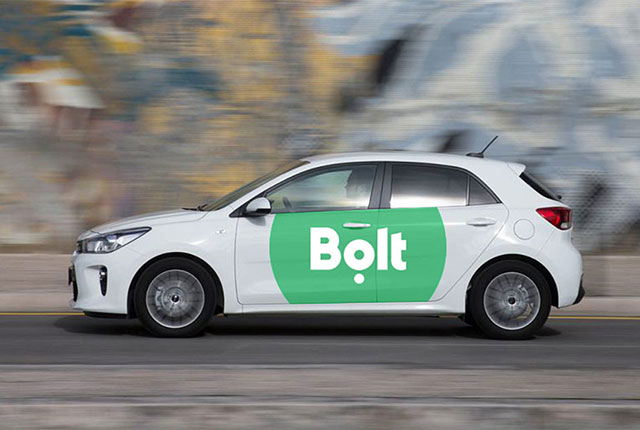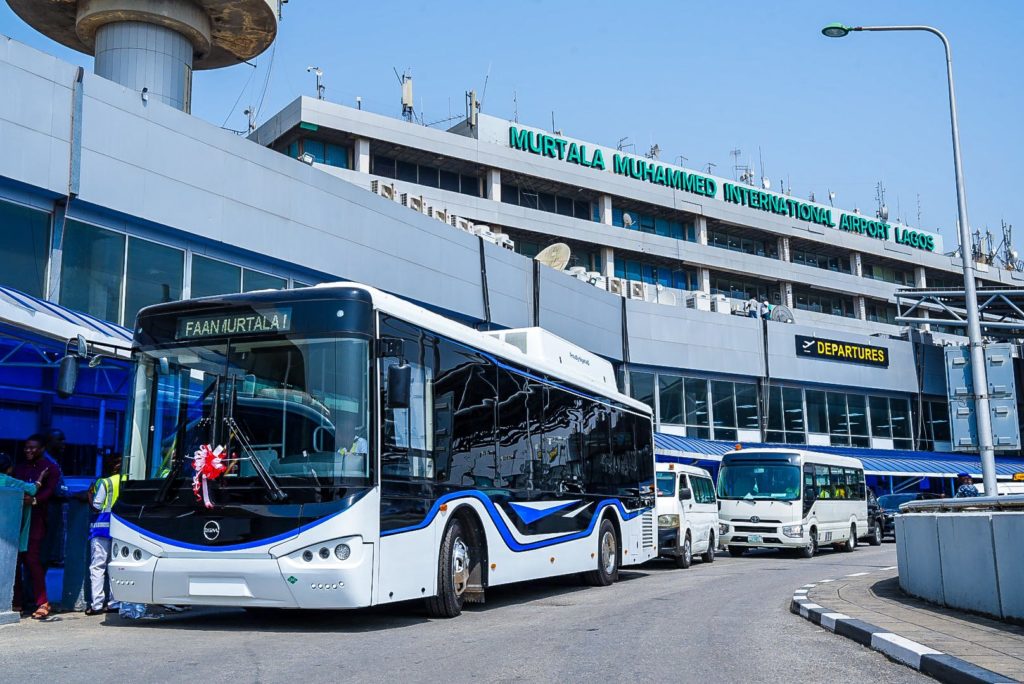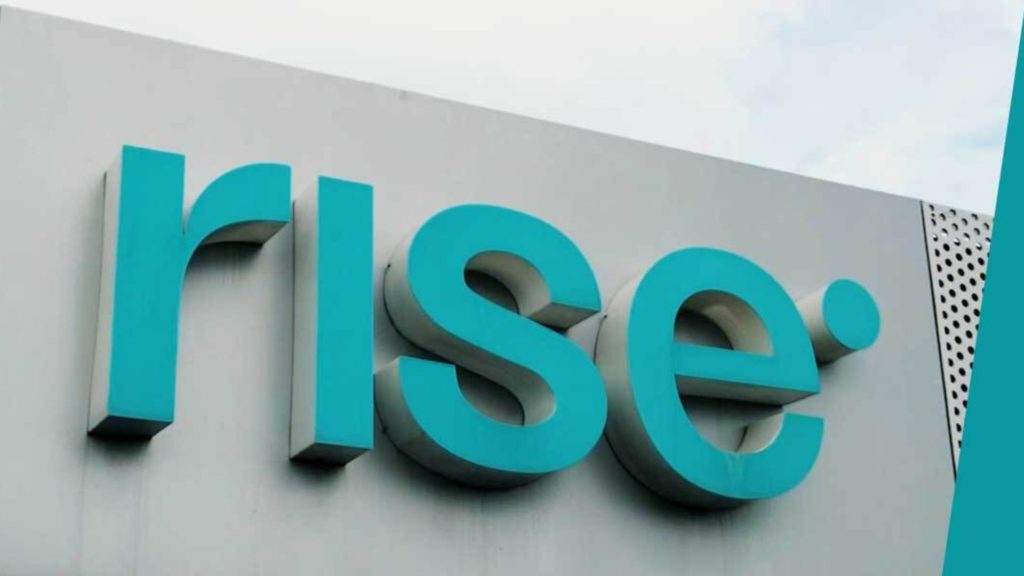
IN PARTNERSHIP WITH

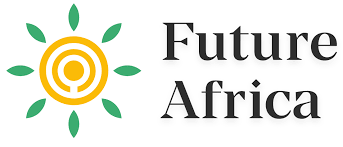

Good morning ☀️ ️
Can we guess your password?
NordPass recently released a report on the most common passwords in 50 countries including Nigeria and South Africa.
The most common password in most of the countries is 123456.
Nigeria also had the highest number of religious passwords including “pastor”, “godisgood”, and “prayer”.
Seems like a lot of people have taken the phrase prayer is the master key too literally.
In today’s edition
- Bolt partners with MAX
- Kenya’s white elephant
- India moves against crypto
- Events: TC Live
BOLT PARTNERS WITH MAX

Earlier this year, Bolt launched a vehicle financing programme that offered drivers in Nigeria a flexible plan through which they could purchase their own vehicles. The scheme allows drivers to own a car or motorbike with low equity repayment for about four years and at no interest.
Backstory: In Nigeria, insufficient purchasing power among middle-class citizens, coupled with limited or no access to vehicle financing, puts car purchases out of reach for over 90% of the population. Also, most taxis and public transport buses in Nigerian cities are leased by drivers, who have to deliver rental fees to the owners periodically.
That means ride-hailing companies such as Uber and Bolt that launch in Nigeria are likely to face a shortage of driver-partners, especially if they’re looking to cover all of the country’s major cities.
MAXimum Bolt-age
The launch of the vehicle financing programme seeks to ensure that working with Bolt is more flexible and profitable for drivers. After a pilot phase, which “enjoyed great success”, the company is revving things up. It has partnered with Metro Africa Xpress (MAX), a Nigerian mobility company with a fintech play, to expand the programme in the country.
MAX’s alternative credit-scoring technology will allow access to proprietary performance and revenue analytics to underwrite the Bolt car loans for drivers. Through the partnership, MAX also plans to introduce electric cars into the mix, leveraging on its connection to Yamaha.
The most interesting thing about the partnership, however, is the loan repayment process, which is longer than what is typically available on the Nigerian market.
Read more: Bolt drives lease-to-own expansion plan for Nigerian drivers.
KENYA’S WHITE ELEPHANT

Kenya’s Standard Gauge Railway (SGR) is shaping up and—finally—shipping out.
Cargo hauled by the SGR rose 24% in the first nine months of the year, according to a recent report published by the Kenya Railways Corporation. This jump in cargo shipments generated around $89 million in revenue.
Bad press on the Madaraka Express
Kenya’s SGR was an expensive project met with raised eyebrows from citizens and journalists. Skeptics called the $3.2 million SGR—funded by loans from China’s EXIM bank—a white elephant, a term used to describe something that costs far more than its value.
The railway was built as a dual-purpose passenger transport and freight service meant to move goods and people from Kenya’s port of Mombasa inland. But, in early 2018, when wheels started rolling, the SGR failed to deliver enough goods or people to justify its exorbitant cost.
Profit or access?
Railways are not always profitable. China, a pioneer in nationwide high-speed railway transport—that also built Kenya’s SGR—has lost no small amount of money to the rails.
But, does a nationwide project always have to make money in the short term?
Prior to the existence of Kenya’s SGR, getting to Mombasa required the purchase of a plane ticket that ranged from $44–$53 one-way, depending on the time of year, or a cheaper bus ticket that often left travellers stuck in traffic.
Meanwhile, the cheapest SGR ticket to Mombasa is $8.90. It also gets you there in five hours, and the price never changes. If anything, it’s opened up nationwide travel to a wider income set in Kenya.
So what do you think? Should profit be the key determinant of success for infrastructure projects in Africa?
In Ep. 3 of Artwork, learn how to build a passionate community around your content.
👉🏾 Watch now.
This is partner content.
INDIA MOVES AGAINST CRYPTO

Bitcoin is down. Ethereum is down. And more regulatory hammers keep coming down against crypto.
India is planning to enact a bill that prohibits all private cryptocurrencies.
The Cryptocurrency & Regulation of Official Digital Currency Bill 2021—as called—also provides a framework for the creation and facilitation of the official digital currency for the country.
Why’s India doing this?
To paraphrase Prime Minister Narendra Modi’s words, crypto has the ability to spoil India’s youth if it ends up in the wrong hands. This year, Indian lawmakers have been weighing the risks involved in crypto, even reaching a consensus that crypto ads are misleading to youths.
India won’t be the first to consider how crypto could affect the safety of its nation.
In September, China banned crypto trading, citing financial crime and the volatility of digital systems as dangers to the global economy. Thirteen countries, including Egypt, Russia and Bolivia, have all banned crypto trading or mining for reasons similar to China’s.
It’s also not the first time India has moved against crypto. From 2016 till 2018, the country banned crypto transactions after a sudden fraudulent surge in such transactions.
The diamond in the rough
Not all cryptocurrencies may be banned though.
While it’s not clear yet, India’s new bill does include provisions for “certain exceptions to promote the underlying technology of cryptocurrency and its uses”.
Join the Future Africa Collective—an exclusive community of investors who invest in startups building the future. With a $300 quarterly fee, you get access to invest a minimum of $2,500 in up to 5 high-growth African startups.
This is partner content.
EVENTS: TC LIVE
 |
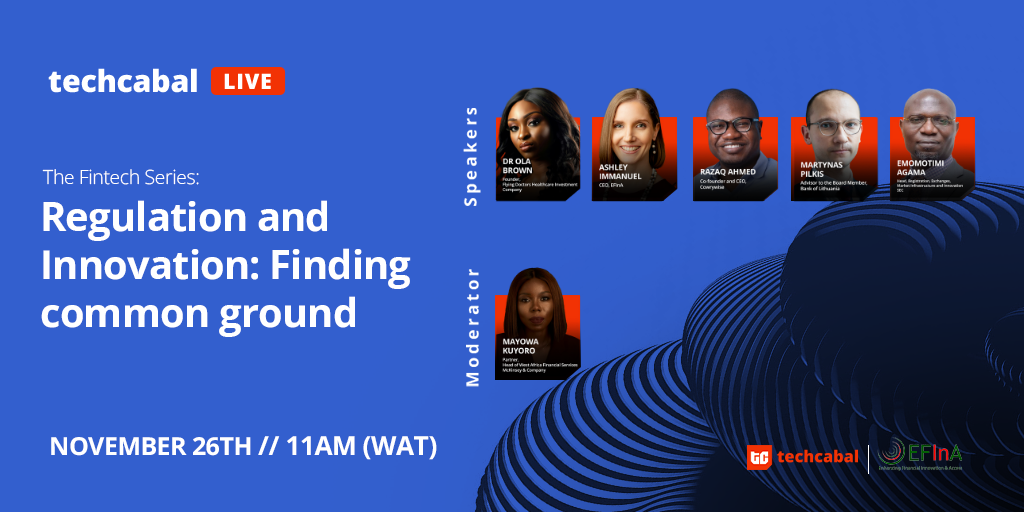
This Friday, Nov 26 at 11 a.m. (WAT), join the following speakers on TechCabal Live as they discuss how regulators and innovators in the fintech sector can find common ground:
- Musa Jimoh – Director, Payments System Management Department, CBN
- Emomotimi Agama – Head, Registration, Exchanges, Market Infrastructure and Innovation, Securities and Exchange Commission
- Ashley Immanuel – CEO, EFInA
- Razaq Ahmed – CEO of Cowrywise
- Dr Ola Brown – Co-founder, Greentree Investment Company and Founder, Flying Doctors Healthcare Investment Company
- Martynas Pilkis – Advisor to the Board Member, Bank of Lithuania
- Oswald Guobadia – SSA (Digital Transformation) to The President, Federal Republic of Nigeria and Nigeria Startup Bill Project Lead (Keynote address)
- Mayowa Kuyoro – Partner and Head of West Africa Financial Services, McKinsey & Company (Moderator)
With this event, the goal is to broker fruitful conversations between fintechs and regulators and pull actionable insights and steps for both parties.
If you’ve been missing previous TC Live sessions, don’t miss this one. You don’t have to be a fintech to join; it’s open to everyone.
Register now.
This event is brought to you in partnership with EFInA and the Fintech Association of Nigeria, with McKinsey & Company supporting as an Insights Partner.
Save 50% on transaction costs with instant, linked-account payments. Ideal for wallet funding, loan repayments, collections, and e-commerce checkouts.
This is partner content.
OPPORTUNITIES
- The TotalEnergies Startupper of the Year Challenge is open to students across Africa, aged 18–35, who embody the USDGs with innovative projects. The prizes to be won include money, media visibility, and mentorship. Find out more on how you can get the three M’s.
- The Design, Product and Developer School Programme is open for applications from young Nigerians seeking to learn graphics design, product design and management, and software development. Apply for the fully-virtual programme.
What else we’re reading
- Africa’s taxi and mobility ecosystem is about to get greener.
- Spotify has launched Ad Studio in Kenya, Tanzania, Uganda, Nigeria and Ghana to allow artists and brands to run ads easily.
- Kenya’s Asilimia raises $2 million to deliver new services and expand into new markets in East Africa.










